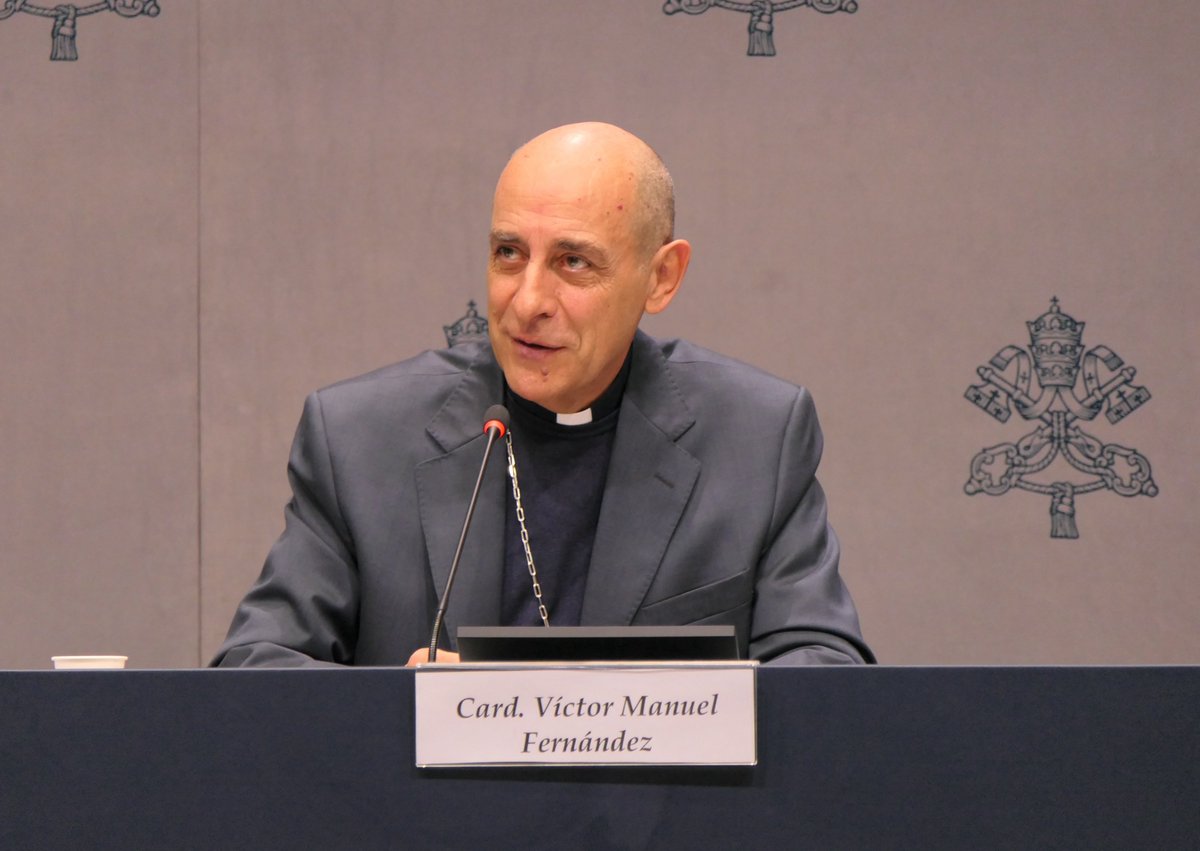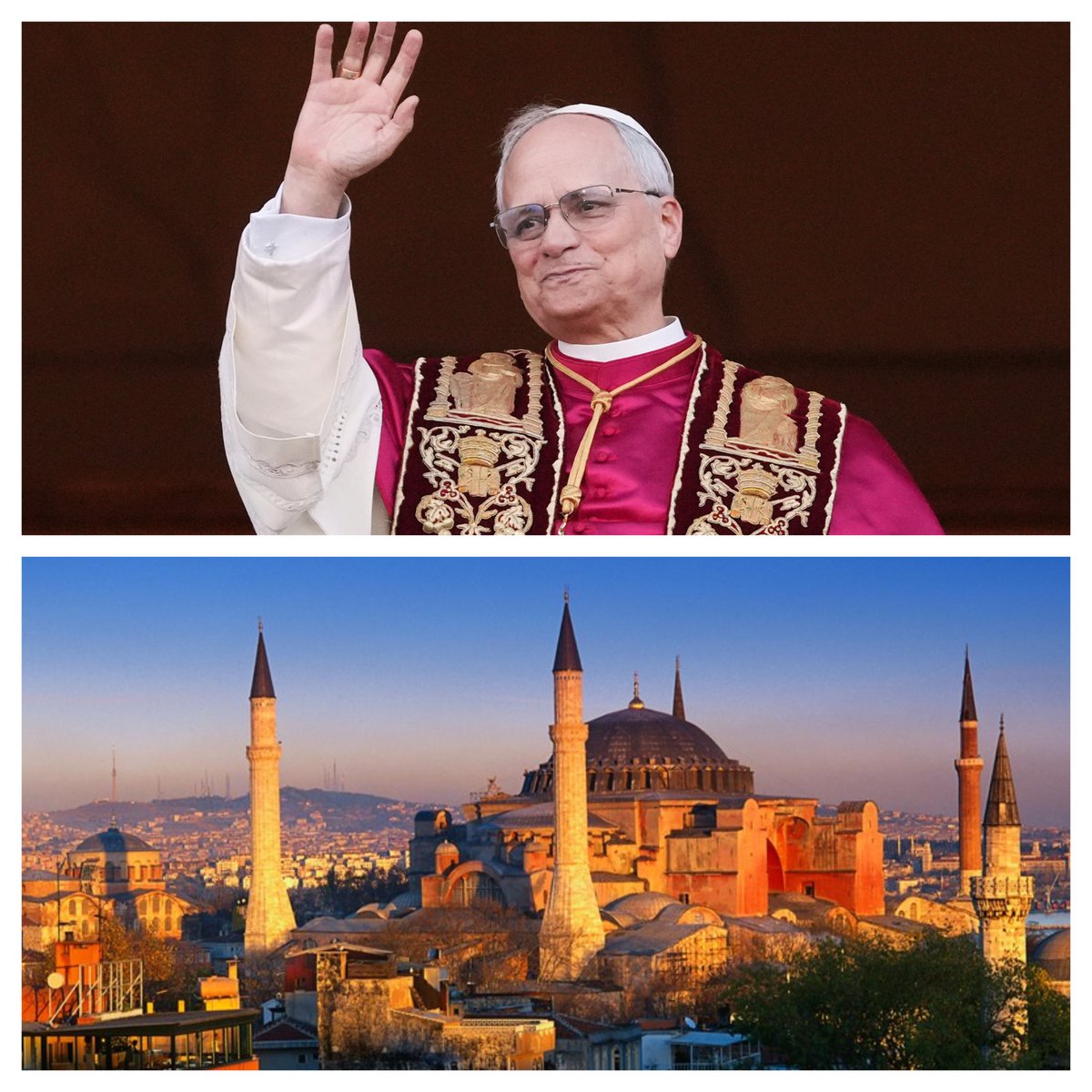Latest theological claptrap from the ‘Pope’…
Francis: Church Wasn’t Sure Holy Spirit Is God Until ‘Experience’ Confirmed It!

It’s Wednesday, and therefore time for another General Audience in Vatican City.
In his role as ‘Pope Francis’, the Argentinian apostate Jorge Mario Bergoglio did not fail to dump more theological piffle on his adoring fans as part of his audience ‘catechesis’. The topic of today’s reflection was the Holy Ghost in the life of the Church, and the false pope used the opportunity to teach a blasphemous idea to his listeners:
In the first three centuries, the Church did not feel the need to give an explicit formulation of her faith in the Holy Spirit. For example, in the Church’s most ancient Creed, the so-called Symbol of the Apostles, after proclaiming: “I believe in God the Father almighty, Maker of heaven and earth, and in Jesus Christ, His only Son, our Lord, who was born, died, descended into hell, rose again from the dead and ascended into heaven”, adds: “I believe in the Holy Spirit” and nothing more, without any specification.
But it was heresy that drove the Church to define this faith. When this process began – with Saint Athanasius in the fourth century – it was precisely the experience she had of the sanctifying and divinizing action of the Holy Spirit that led the Church to the certainty of the full divinity of the Holy Spirit. This occurred during the Ecumenical Council of Constantinople in 381, which defined the divinity of the Holy Spirit with the well-known words we still repeat today in the Creed: “I believe in the Holy Spirit, the Lord, the giver of life, who proceeds from the Father and the Son, who with the Father and the Son is adored and glorified, who has spoken through the prophets”.
(Antipope Francis, General Audience, Vatican.va, Oct. 16, 2024; underlining added.)
In this second paragraph, especially in the underlined portion, we find at least the following grave errors:
- that the Catholic Church was not certain that the Holy Ghost was truly God, the Third Person of the Holy Trinity, for the first 300 years;
- that the Church received this certainty only in the fourth century;
- that the Church received this certainty only by experience (a posteriori) and therefore not from the Deposit of Faith handed down by the Apostles
Let us respond to this latest Bergoglian mess.
To say that the Catholic Church wasn’t sure for the first few hundred years whether the Holy Ghost is divine and the Third Person of the Blessed Trinity, would mean that the Apostles did not explicitly teach and hand down one of the most important dogmas of the Church, a dogma so foundational and essential that one could not and cannot be saved without explicit knowledge of it: “…a missionary is bound to explain to an adult, even a dying one who is not entirely incapacitated, the mysteries of faith which are necessary by a necessity of means, as are especially the mysteries of the Trinity and the Incarnation” (Pope Clement XI, Holy Office Response to the Bishop of Quebec, Jan. 25, 1703; Denz. 1349a; underlining added).
“The trinity of persons in the unity of the divine essence is established by the perpetual and genuine tradition of the Church before the Council of Nicaea”, confirms Fr. Joseph Dalmau, S.J., in his book On the One and Triune God, which is vol. IIA of the Sacrae Theologiae Summa collection of the Spanish Jesuits published in the mid-1950s (Thesis 27, p. 279; italics added).
The alleged 300-year “uncertainty” of the Church with regard to the Holy Ghost is further refuted by the clear testimony of Sacred Scripture itself, as Fr. Dalmau explains:
1. What is said in John 14:16 about the Holy Spirit places him in the community of life with the Father and the Son. The fullness and perfection of the work of Christ are attributed to him in a way that is clearly divine. The Holy Spirit proceeds from the Father (15:26) and from the Son he receives knowledge by an eternal procession (16:13); he will be sent from the Father at the request of the Son, and from the Son himself when he will already have been glorified, and he will remain eternally with the Apostles (14:16); he is the Spirit of truth who will teach you all things (14:17,26), even those things which the Apostles cannot bear now (16:12).
2. The action of the Holy Spirit in the spiritual life is completely divine. The divine life of man is the fruit of the Spirit (Rom. 8:11); because of the Spirit of God dwelling in us (Gal. 5:19-23); we are in Christ and sons of God by the Holy Spirit (Rom. 8:14; Eph. 1:13); everything that takes place in Christ, also takes place in the Spirit, justification, sanctification, sealing (1 Cor. 6:11; Rom. 15:16; Eph. 1:13; 4:30), and elsewhere passim [i.e., in many places]; he distributes charisms (1 Cor. 12:4-6)—this text is understood by some interpreters to be about the Holy Spirit, who is also called God and Lord; but if, which seems to be more probable, the text is trinitarian, then clearly the Holy Spirit is placed in the same divine order as the Father and the Son. From this it follows that we are temples of the Holy Spirit (1 Cor. 6:19-20). Do you not know that your body is a temple of the Holy Spirit within you, which you have from God?… So glorify God in your body; where either the Holy Spirit is called God, or (if v. 20 should be referred to the Father) at least the Holy Spirit has a temple, which is something divine. Moreover, the action of the Holy Spirit in the body of the Church, as described in the Acts of the Apostles, is wholly divine, free and independent.
(Fr. Joseph M. Dalmau, S.J., On the One and Triune God, vol. IIA of Sacrae Theologiae Summa, trans. by Fr. Kenneth Baker, S.J. [Saddle River, NJ: Keep the Faith, 2016], pp. n. 313, pp. 267-268; italics given.)
The author lists additional biblical evidence for the divinity of the Holy Spirit, but the quoted portions shall suffice for our purposes.
Furthermore, the very Saint Athanasius (c. 296-373) to whom Francis refers also refutes this absurd Bergoglian idea of a Church unsure of her God. In one of his letters to the monk Serapion, the saint testifies that the doctrine of the Holy Trinity — and thus the divinity of the Holy Ghost — was preached and believed by the Church from the very beginning:
Likewise let us consider this tradition from the very beginning and the doctrine and faith of the Catholic Church, which the Lord handed on, the Apostles preached, and the fathers preserved…. Therefore the holy and perfect Trinity is what is recognized in the Father, the Son and the Holy Spirit.
(St. Athanasius, First Epistle to Serapion, n. 28; translation by Fr. Kenneth Baker, S.J., taken from Sacrae Theologiae Summa, vol. IIA, n. 328, p. 281.)
Francis’ daring thesis is reminiscent of Modernism: “Historians of dogma of the liberal school, like [the Lutheran Adolf von] Harnack, maintain that before the Council of Nicaea there was no definite and fixed doctrine in the Church about the Trinity…”, writes Fr. Dalmau (On the True and Triune God, n. 327, p. 280).
Admittedly, Francis isn’t saying that the divinity of the Holy Spirit was invented in the fourth century; he is claiming that the Church wasn’t sure whether the Holy Ghost was truly God until then. But this would imply precisely what Harnack maintained, namely, that “there was no definite and fixed doctrine in the Church about the Trinity…” in the first few hundred years.
Lastly, to say that the Catholic Church did not receive certainty with regard to the nature of the Holy Ghost (and thus the Trinity) until the fourth century, and to say that this certitude came from the “experience” of the action of the Holy Spirit — as if the Church first had to ‘wait and see what happens’ for a few hundred years before she knew the truth about the God who established her — is to imply that it is not based on the Deposit of Faith “once delivered to the saints” (Jude 3) but more or less constitutes a new revelation the Church received in addition to that Deposit.
However, the First Vatican Council taught what constitutes the only two sources of divine revelation, and the ‘experience of the Church over time’ is not one of them:
Furthermore, this supernatural revelation, according to the faith of the universal Church, as declared by the holy synod of Trent, is contained “in the written books and in the unwritten traditions which have been received by the apostles from the mouth of Christ Himself; or, through the inspiration of the Holy Spirit have been handed down by the apostles themselves, and have thus come to us” [Council of Trent, Session IV].
(First Vatican Council, Dogmatic Constitution Dei Filius, Chapter 2; Denz. 1787; underlining added.)
Thus, Pope St. Pius X (r. 1903-1914) made clear that it is Modernism to say that divine revelation — the public kind that makes up the Deposit of Faith given by Christ to the Apostles — continued after the death of the last Apostle (St. John): “Revelation, constituting the object of the Catholic faith, was not completed with the Apostles” (Error no. 21, condemned in Pope Pius X, Decree Lamentabili Sane.)
Further, in the Oath against Modernism imposed by the same Pope on all clergy, pastors, confessors, etc., the Catholic swears:
Fourthly, I sincerely hold that the doctrine of faith was handed down to us from the apostles through the orthodox Fathers in exactly the same meaning and always in the same purport. Therefore, I entirely reject the heretical’ misrepresentation that dogmas evolve and change from one meaning to another different from the one which the Church held previously.
(Oath against Modernism; in Pope St. Pius X, Decree Sacrorum Antistitum; underlining added.)
Thus it is impossible that the Church should have received additional revelation after St. John died on the island of Patmos around 100 A.D.
For ‘Pope’ Francis, however, this idea that the Church receives additional revelation through her ‘experience’ of ‘walking together’ through history, is essential to his ongoing Modernist revolution.
Image source: YouTube (screenshot)
License: fair use





No Comments
Be the first to start a conversation